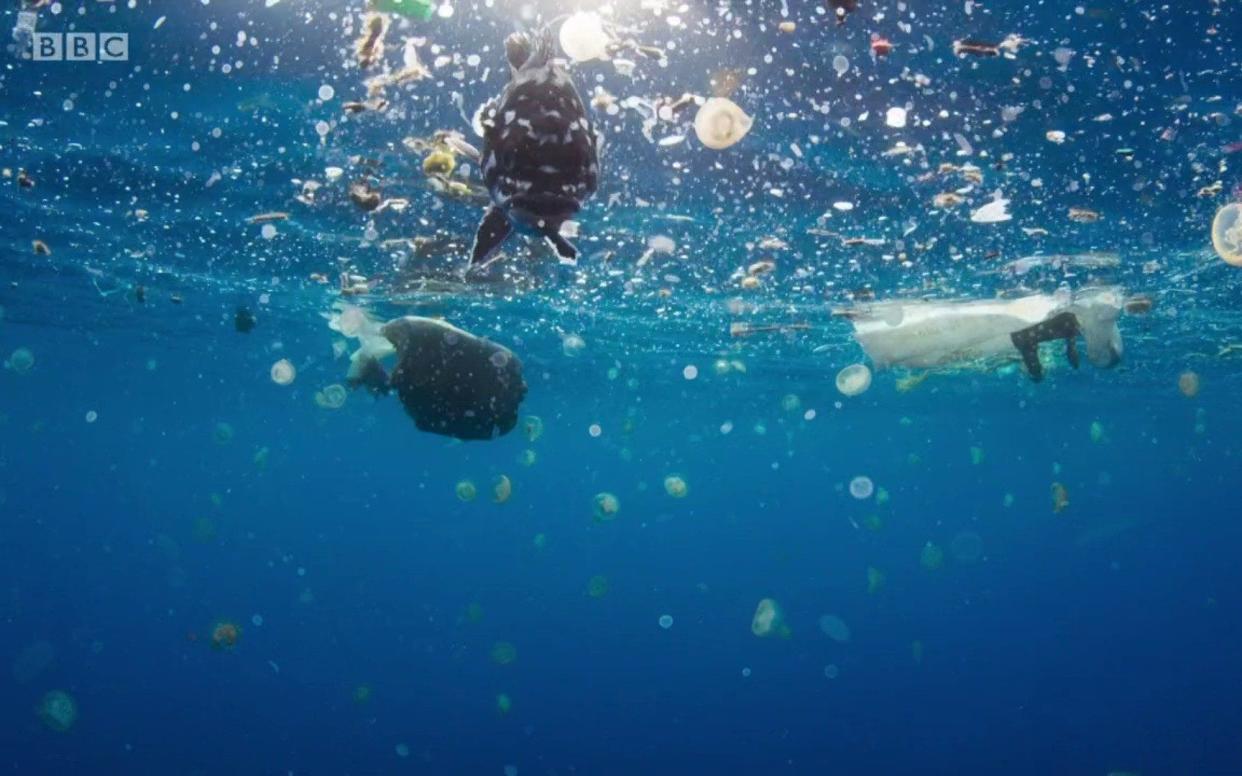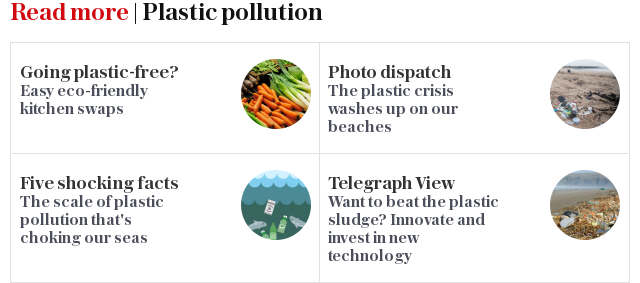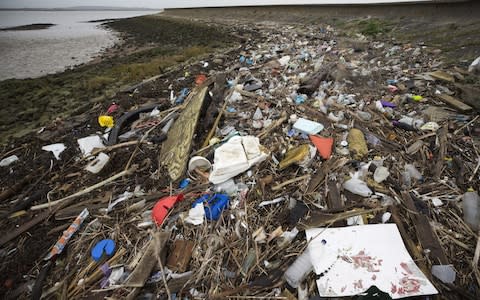Sea plastic set to treble within a decade, Government scientists warn

The amount of plastic ending up in the ocean is set to treble within a decade unless action is taken, a major report has warned.
Senior Government scientists have said that full damaging effects of seaborne plastics is not yet known, but that it could be aiding the spread of bugs such as E.coli.
Plastics is one of a number of environmental issues facing the world's seas, along with rising sea levels and warming oceans, and metal and chemical pollution, the Foresight Future of the Sea Report for the Government said.
But it predicted there are also opportunities for the UK to cash in the global "ocean economy" - which is set to double to £2 trillion by 2030 - in areas where the country is a world leader, such as offshore wind.
The scientists behind the report warned of the danger of the oceans being "out of sight, out of mind", with more known about the surface of Mars and the Moon than the deep sea bed.
The report found there are "major opportunities" for robotics, artificial intelligence and automated technology to fill gaps in understanding of ocean science.
Work is also beginning on the impacts of plastic in the ocean, as experts are not sure what threats it poses, Professor Ian Boyd, chief scientific adviser for the Environment Department said.

Plastic pollution, which is set to treble between 2015 and 2025 without intervention, has a physical presence in the oceans, and can accumulate on the coasts or in particular areas of the sea.
But the toxic effects when they break down and end up inside marine organisms are not clear, he said.
But he added: "Even in absence of research, there is a precautionary principle to take here, which is we should minimise the amount of plastic, both macro-plastic and micro-plastic, going into the marine environment, in order to make sure that if there are toxic effects, those are being dealt with."
Efforts to reduce plastic pollution should focus on preventing it entering the sea, introducing new biodegradable plastics and public awareness campaigns about marine protection.

Professor Ed Hill, executive director of the National Oceanography Centre, said it was time to change the attitude of what goes on below the surface as "out of sight, out of mind" and have more of a "Mission to Planet Ocean" approach.
He said: "When people get to see what is in the ocean, and the Blue Planet series and so on have helped people to visualise it, and then I think their reaction is twofold, one is complete wonder at what is there, and in other cases complete horror at what we're potentially doing to it.
"It's this sense of the unexplored world on our own planet, but also it's important to us, we know less about the bottom of the sea than the moon or Mars, but nothing lives on the moon or Mars, but things live in our ocean and they're vitally important to us."

 Yahoo News
Yahoo News 
